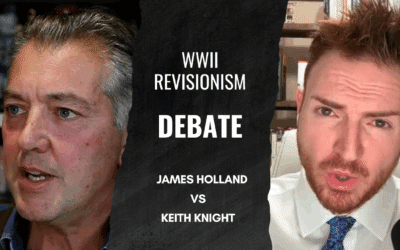“My case for pacifism, to recap, comes down to three simple premises. The first two are empirical:
Premise #1: The short-run costs of war are clearly awful. [Empirical claim about immediate effects of war].
Premise #2: The long-run benefits of war are highly uncertain. [Empirical claim about people’s ability to accurately forecast the long-run effects of war].These empirical claims imply pacifism when combined with a bland moral premise:
Premise #3: For a war to be morally justified, the expected long-run benefits have to substantially exceed its short-run costs. [Moral claim, inspired by Judith Jarvis Thomson’s forced organ donation hypothetical].”
Excerpt From: Bryan Caplan. “How Evil Are Politicians?: Essays on Demagoguery.” p. 125
Joseph Solis-Mullen is a political scientist and graduate student in the economics department at the University of Missouri. An independent researcher and journalist, his work can be found at the Ludwig Von Mises Institute, Eurasian Review, Libertarian Institute, Journal of the American Revolution, Antiwar.com, and the Journal of Libertarian Studies.
Find Joseph Solis-Mullen here:
Article archive at the Mises Institute
The Fake China Threat and Its Very Real Danger
Video imagery from the Vital Dissent with Patrick MacFarlane podcast
Book discussed, The Great Powers
Podcast: Play in new window | Download
































